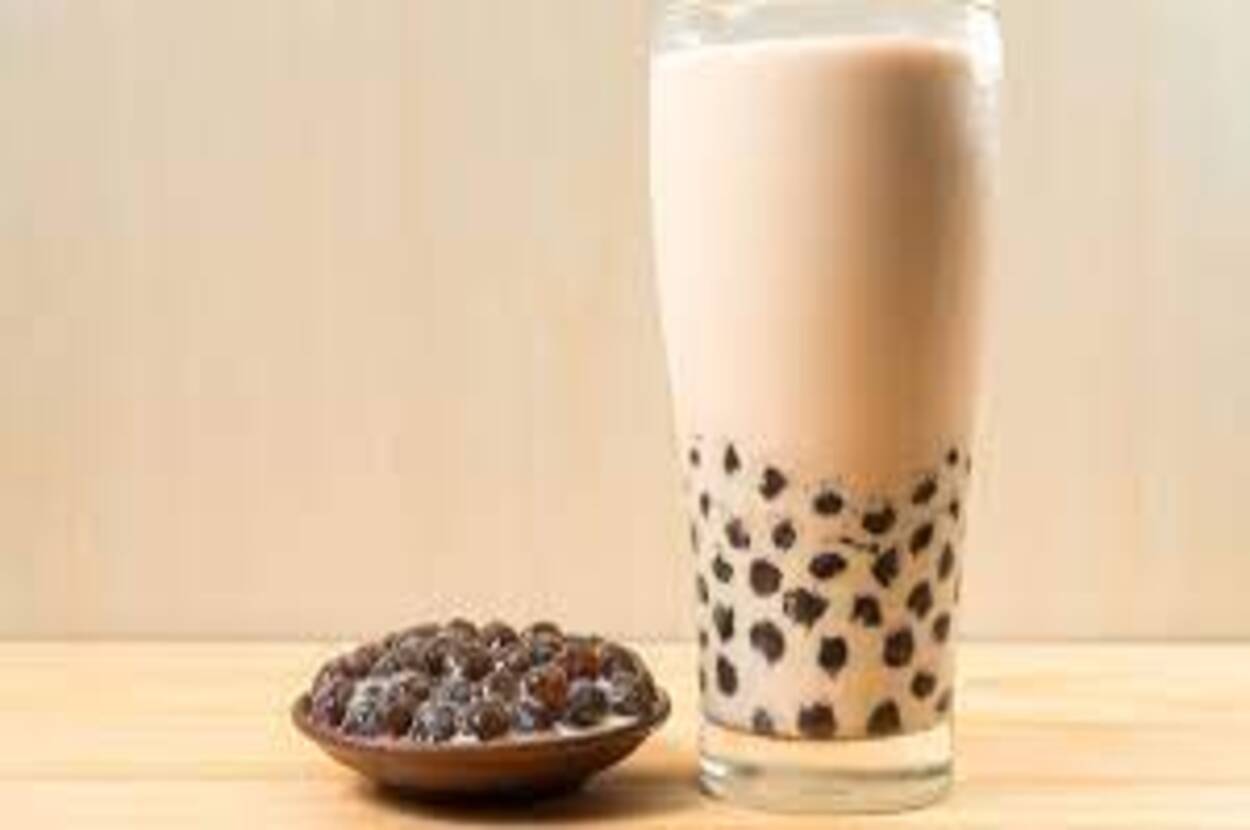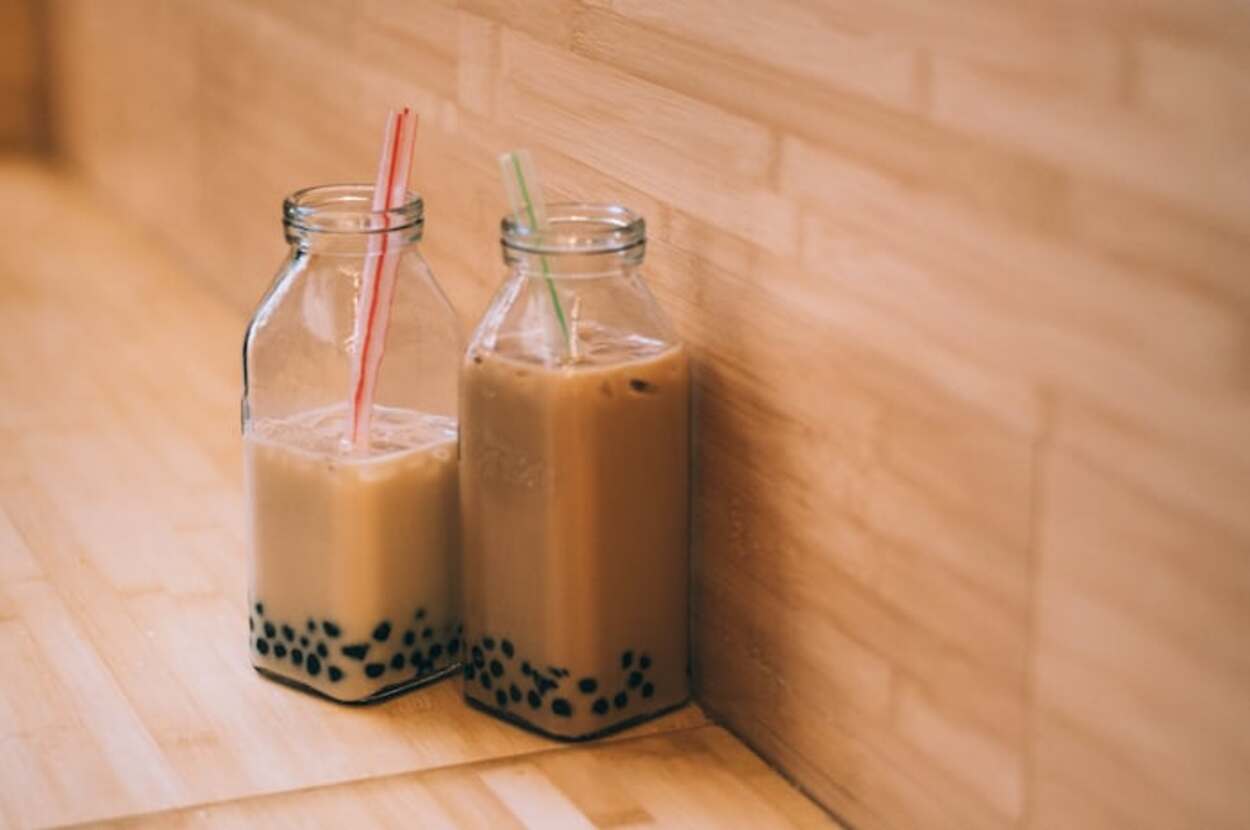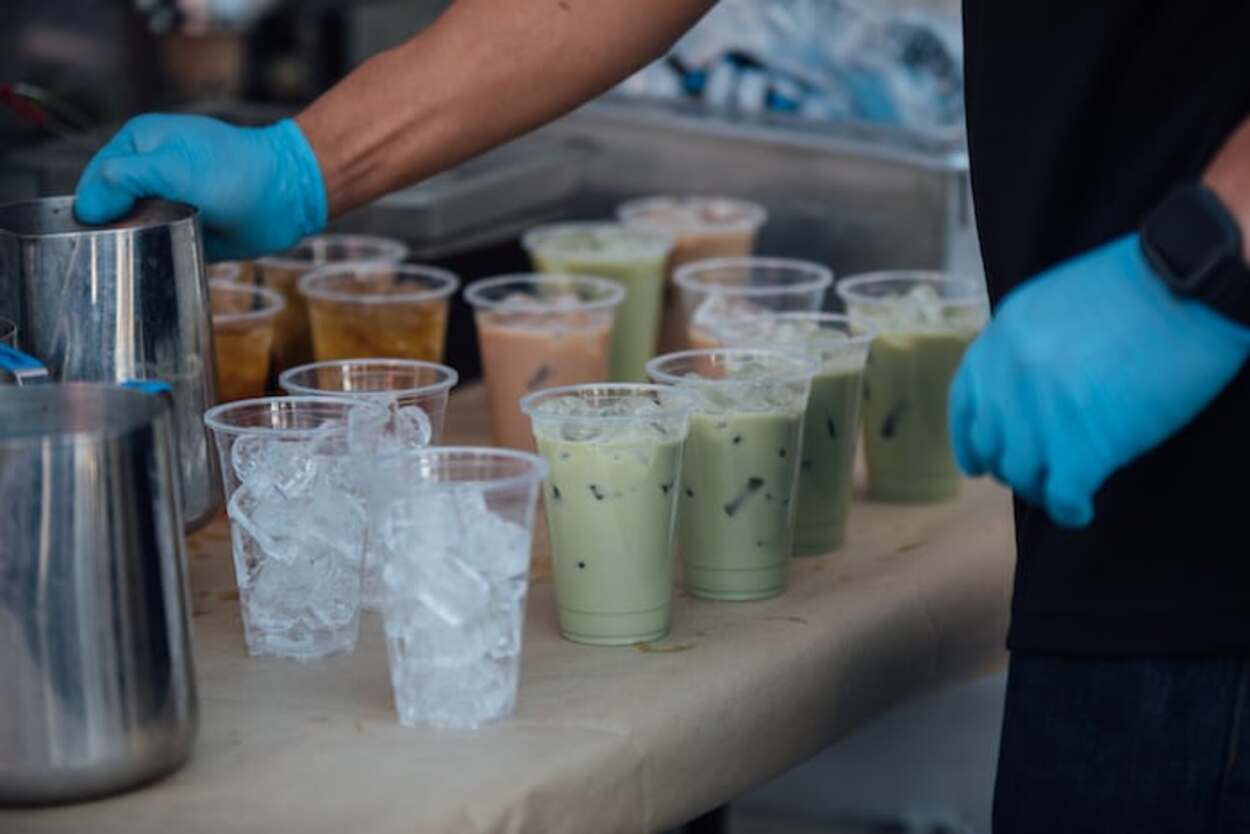Bubble tea, also known as boba tea, is a popular beverage that originated in Taiwan in the 1980s. Bubble tea has gained popularity worldwide and is now available in many cafes and restaurants around the world.
But as with any food or beverage, the question arises, “Is bubble tea okay in moderation?”
It’s fine to drink bubble tea in moderation or occasionally. It’s a sweet and refreshing drink that’s made with a tea base, milk, and chewy tapioca pearls.
In this article, we’ll explore the health benefits and risks associated with bubble tea. We’ll also provide some tips for enjoying bubble tea so let’s dive in and find out more.
How Often Should You Drink Bubble Tea?
It is best to consume bubble tea in moderation, as a treat or indulgence rather than a regular part of your diet.
While the exact frequency will depend on individual dietary needs and goals, limiting consumption to once a week or less is a good guideline.

If you choose to drink bubble tea more frequently, there are ways to make it healthier, such as opting for lower sugar options, using alternative milk options, or choosing healthier toppings.
However, it’s important to be aware of the potential health risks associated with excessive sugar and tapioca pearl consumption, and making informed choices is crucial in this case.
Health Benefits of Bubble Tea
Antioxidants
Most bubble teas are made with tea leaves which are a rich source of antioxidants. Antioxidants are essential for good health as they help protect the body from damage caused by free radicals.
Low in calories
Bubble tea can be low in calories if it’s made with a non-dairy milk alternative such as almond or soy milk. This makes it a good option for those looking to cut down on their calorie intake.
Energy boost
Bubble tea contains caffeine which can provide an energy boost, making it a good option for those who need a quick pick-me-up.
Health Risks of Bubble Tea
High in Sugar
Bubble tea can be high in sugar, which can contribute to weight gain, diabetes, and other health problems. Some bubble tea recipes can contain up to 50 grams of sugar in a single serving, which is more than the recommended daily intake for adults.
Tapioca Pearls
The chewy tapioca pearls used in bubble tea are made from tapioca starch, which is high in calories and low in nutrients. Additionally, some studies have shown that pearls can be a choking hazard, especially for children.
Additives
Many bubble tea recipes contain artificial sweeteners, flavors, and colors, which can have harmful effects on the body. Some studies have linked artificial sweeteners to an increased risk of cancer and other health problems.
If you want to know about the further effects of drinking bubble tea, watch the following video.
Pros and Cons of Bubble Tea
Let’s have a one-to-one comparison of the good and bad things about bubble tea.
| Pros of Bubble Tea | Cons of Bubble Tea |
| Can be a source of antioxidants | High sugar content |
| Can provide a caffeine boost | Tapioca pearls are high in calories |
| Can be customized to personal taste | Potential choking hazard with tapioca pearls |
| Offers a unique and enjoyable drinking experience | May not fit into certain dietary restrictions or goals |
How Unhealthy is Bubble Tea?

Bubble tea can be considered unhealthy due to its high sugar content and use of tapioca pearls. The sugar content in bubble tea can range from 20-100 grams per serving, depending on the flavor and amount of sweetener used.
Consuming excessive amounts of sugar can lead to weight gain, type 2 diabetes, and other health issues.
Additionally, tapioca pearls, the signature ingredient in bubble tea, are high in calories and low in nutrients. One serving of tapioca pearls can contain around 100-150 calories and offers no nutritional value.
Furthermore, tapioca pearls can pose a choking hazard due to their size and texture. While bubble tea can be enjoyed in moderation as a treat, consuming it regularly or in large quantities can have relatively long-lasting negative effects on health.
Can I Drink Bubble Tea on a Diet?
It depends on the specific diet and goals. If you are following a low-sugar or low-calorie diet, it may be best to limit or avoid bubble tea due to its high sugar content and calorie count.
For example, a basic bubble tea made with black tea, milk, and sugar can contain around 300 calories and 40 grams of sugar per serving. This can quickly add up if you consume multiple servings per day or week.
However, some cafes offer options for customizing your bubble tea, such as requesting fewer sweeteners or using alternative milk options like almond, soy, or oat milk.
Additionally, some cafes offer healthier toppings like fruit jelly or aloe vera, which can lower the calorie count and sugar content.
Overall, it’s important to be mindful of the sugar and calorie content in bubble tea if you are on a diet and to choose options that fit within your dietary goals.
How Much Sugar is in Boba?
The amount of sugar in boba or bubble tea can vary depending on the recipe and preparation method. However, in general, bubble tea or boba contains a significant amount of added sugar.
The sugar content in boba depends on the type of sweetener used and the amount added to the drink. Typically, bubble tea contains around 30-50 grams of sugar per serving.
Tips for Enjoying Bubble Tea in Moderation
- Choose a smaller size: Many cafes offer bubble tea in large sizes, which can contain up to 800 calories. Choosing a smaller size can help you enjoy your favorite beverage without consuming too many calories.
- Ask for less sugar: Most bubble tea recipes can be customized to your liking. Asking for less sugar or choosing a sugar-free option can help reduce your overall sugar intake.
- Substitute tapioca pearls: If you’re concerned about the calories and potential choking hazards of tapioca pearls, consider asking for a different type of topping. Many cafes offer other options such as fruit jelly, aloe vera, or boba made from different ingredients such as fruit or vegetables.
- Limit frequency of consumption: Like with any indulgent treat, it’s important to limit the frequency of consuming bubble tea. Enjoying it as an occasional treat rather than a daily habit can help you maintain a healthy diet and lifestyle.

Apart from bubble tea, there is another tea called Thai tea which is our personal favorite because of its qualities and I bet it would be a good alternative too if you try it.
Thai vs. Bubble Tea
Here are some of the reasons why Thai Tea would be a better alternative to Bubble Tea
Health Benefits
Thai tea, which is made from a blend of tea, spices, and milk, is a healthier alternative to bubble tea. It contains less sugar and calories and is high in antioxidants.
Thai tea is also a good source of vitamin B6, which is important for brain function and the immune system.
Better Taste
Thai tea has a unique flavor profile that’s hard to beat. It’s made with a blend of tea, spices, and sweetened condensed milk, giving it a rich and creamy taste.
Thai tea also contains less caffeine than bubble tea, which can be a good option for those looking to reduce their caffeine intake.
Lower Cost
Thai tea is often cheaper than bubble tea, making it a great option for those on a budget. Thai tea can be easily made at home with simple ingredients, making it a convenient and affordable option for anyone.
Conclusion
- Bubble tea is a popular and delicious beverage that can be enjoyed in moderation.
- While it does have some health benefits, it’s important to be mindful of the potential health risks associated with consuming too much sugar and tapioca pearls.
- Thai tea is a healthier alternative that offers similar flavor profiles and nutritional benefits without the risks associated with bubble tea.
- By following some simple tips for enjoying bubble tea in moderation, you can still indulge in this tasty beverage without compromising your health goals.